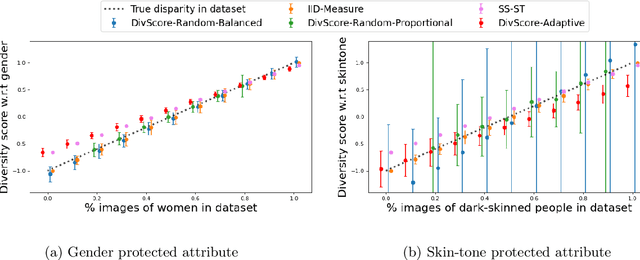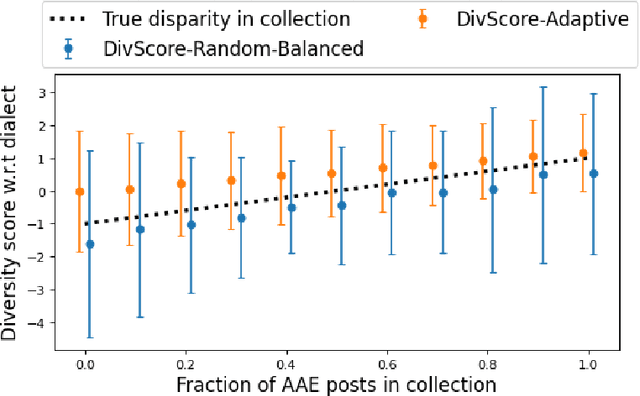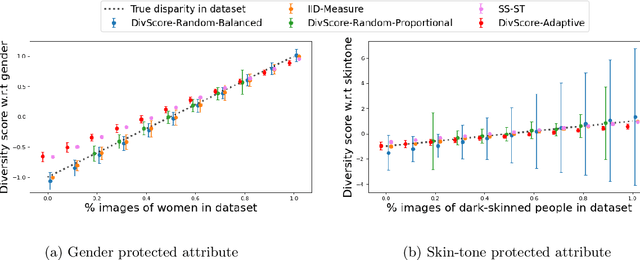Auditing for Diversity using Representative Examples
Paper and Code
Jul 15, 2021



Assessing the diversity of a dataset of information associated with people is crucial before using such data for downstream applications. For a given dataset, this often involves computing the imbalance or disparity in the empirical marginal distribution of a protected attribute (e.g. gender, dialect, etc.). However, real-world datasets, such as images from Google Search or collections of Twitter posts, often do not have protected attributes labeled. Consequently, to derive disparity measures for such datasets, the elements need to hand-labeled or crowd-annotated, which are expensive processes. We propose a cost-effective approach to approximate the disparity of a given unlabeled dataset, with respect to a protected attribute, using a control set of labeled representative examples. Our proposed algorithm uses the pairwise similarity between elements in the dataset and elements in the control set to effectively bootstrap an approximation to the disparity of the dataset. Importantly, we show that using a control set whose size is much smaller than the size of the dataset is sufficient to achieve a small approximation error. Further, based on our theoretical framework, we also provide an algorithm to construct adaptive control sets that achieve smaller approximation errors than randomly chosen control sets. Simulations on two image datasets and one Twitter dataset demonstrate the efficacy of our approach (using random and adaptive control sets) in auditing the diversity of a wide variety of datasets.
 Add to Chrome
Add to Chrome Add to Firefox
Add to Firefox Add to Edge
Add to Edge